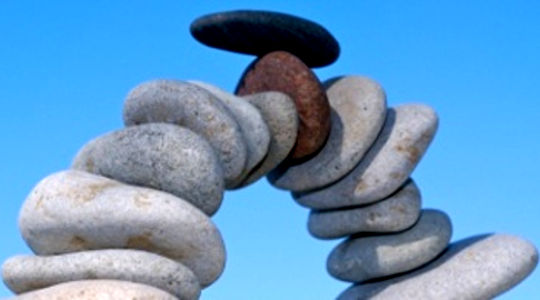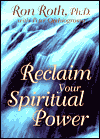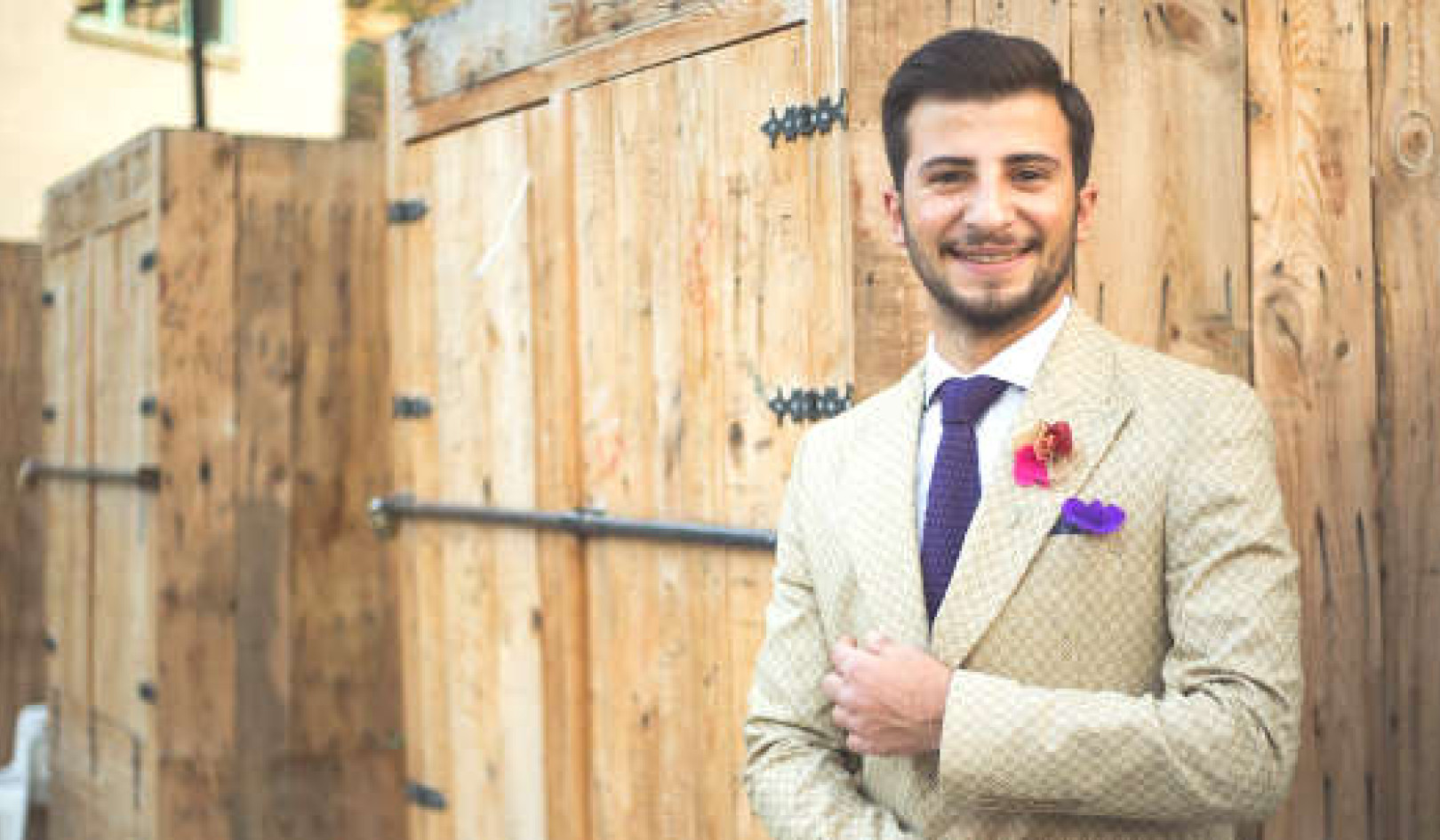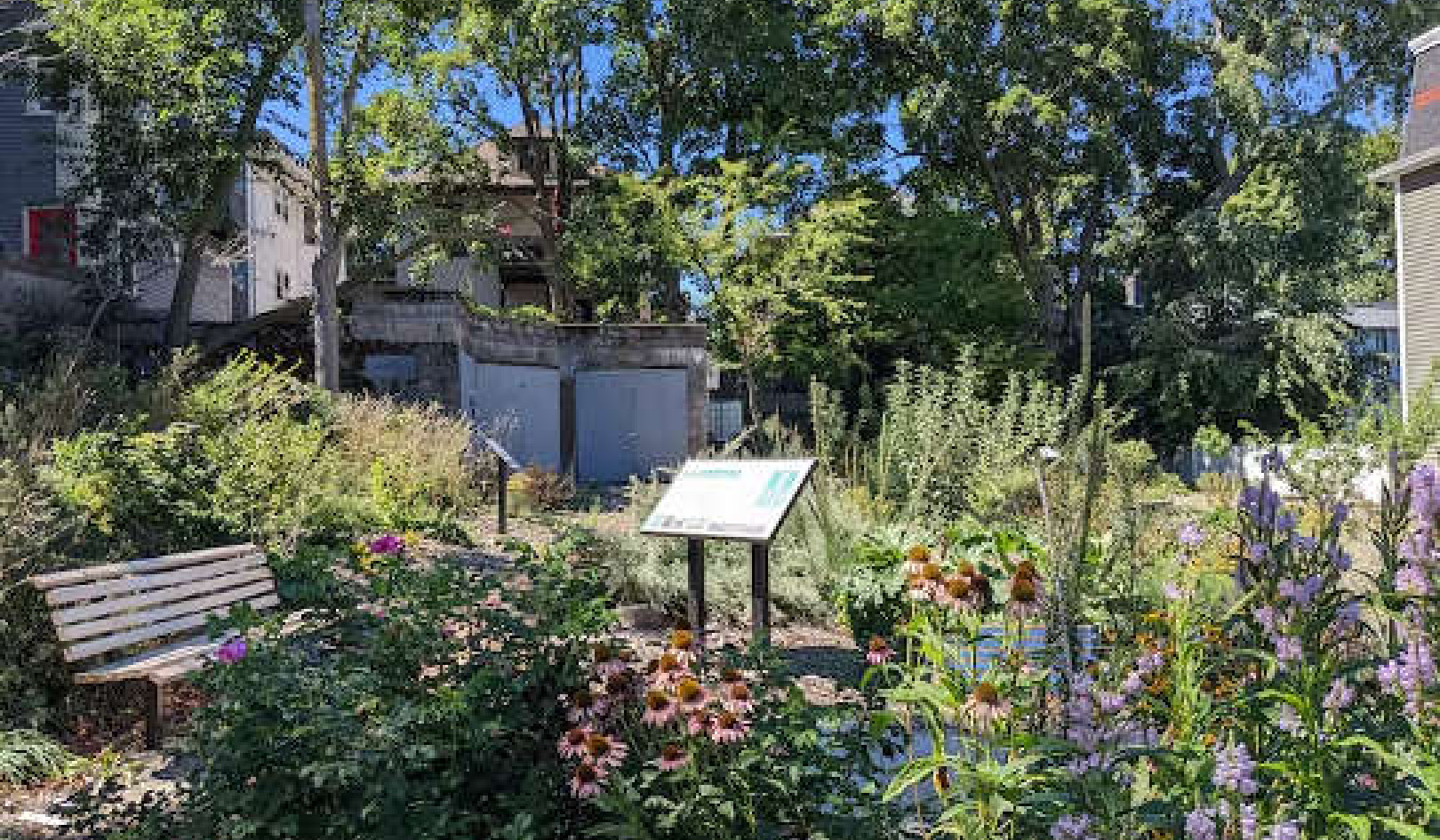
The one thing that will most help you reclaim your spiritual power is avoiding formulas and formulaic thinking. Formulas are fine for solving math problems or for figuring out the stress factors in steel beams, but they don't help very much when it comes to healing and prayer. In most cases, you would do better to follow a creative amalgam of common sense, intuition, and balance.
Take the everyday subject of nutrition. Most of us know that a reasonably balanced diet is the best way to achieve cardiovascular health and lower your chances of heart attack -- or is it? I wouldn't be so brash as to say that we should just forget about following healthful dietary regimens; I follow one myself. But let's take a look at some of the other factors that may be involved with good health.
Can Lard Be Good for You?
In 1961, Stewart Wolf, M.D., then a professor at the University of Oklahoma School of Medicine, investigated Roseto, a town set in an area of eastern Pennsylvania amid the Poconos, where the rate of illness and death from heart disease was less than half the national average and nobody had ever had a heart attack before the age of 45. And yet, astonishingly, the men of the village all smoked cigarettes and drank wine aplenty. On top of that, most of the men worked 200 feet down in the earth in dangerous slate quarries nearby, while almost all of the women worked in local blouse factories with unhealthy conditions.
The people of Roseto favored traditional Italian meals, which were already bursting with cheese and sausage, and modified them with local ingredients that were the last word in toxic food. Although many dietitians recommend olive oil for cooking instead of animal fat, the poor immigrants who built Roseto as a self-contained community after being shunned by the English and Welsh populations in that part of Pennsylvania couldn't afford to import olive oil from Italy -- so they cooked their sausages and meatballs in lard! What possible medical or dietary explanation could there be for these people's extraordinary good health?
Not surprisingly, it turns out that the healthiness of the citizens of Roseto had little to do with what they ate. What Dr. Wolf discovered was a tight-knit Italian-American community of fewer than 1,600 who lived in an atmosphere of mutual support and common interests in a way that seemed to protect its residents from the stresses of everyday life. In his book The Roseto Story: An Anatomy of Health, Dr. Wolf wrote about a world whose inhabitants tended to live in extended families in which grandparents, parents, and children dwelt in the same house in a system of mutual support and nurturance.
"In the evening after supper, most families would walk around their neighborhood and chat and joke with each other," he said. "They were obviously enjoying each other's company."
Rosetans also took active roles in more than 20 community organizations and civic groups, from the Italian social club to the PTA and Elks, and, as you might imagine, the Catholic Church. Dr. Wolf labeled the health benefits of living such a community style of life "the Roseto Effect."
What Dr. Wolf found in Roseto wasn't an isolated incident. A number of studies over the past 50 years have shown that people who are socially engaged tend to outlive those who aren't. Many studies have shown that married people live longer than those who are single, and that receiving personal support can lessen the effects of heart disease, increase the longevity of women with breast cancer, and help people recover from long-term addictions.
Certainly Roseto itself offers convincing proof of what happens when extended social and familial support dissipates, which has happened in most of the United States. In the early 1970s, younger people in the community began to work outside of the region, church attendance fell, and the pattern of three generations living in the same household began to disappear. In addition, economic and class differences pulled the social fabric further apart. Those who became more affluent began to socialize at an exclusive country club and moved away from the close-knit hub of town into larger, fenced-in spreads with expensive cars and more luxurious amenities. As the divisions widened, the health of the inhabitants declined to match the national average. And this was after much of the population had been persuaded to switch to a "healthier" diet!
The extended-family relationships that the people of Roseto enjoyed mirror the way I grew up. In my hometown, we never talked much about the relationship of food to being overweight or counted fat grams. I ate the same standard American diet that has been criticized for creating an epidemic of obesity in this country, and yet I never gained weight as long as I resided in that town. The women from my old neighborhood still live that way, socializing and interacting in ways that have all but disappeared elsewhere due to overwork and the fragmentation of families. And many of them are now in their 80s and 90s, probably eating in the same "unhealthy" way.
And What About Wine?
 Some years ago, 60 Minutes ran a segment about what they called "the French Paradox": Although most French people ate large meals that generally included fatty foods, heavy sauces, and lots of butter and cream, their incidences of heart disease and serum cholesterol were less than half of Americans. A theory was put forward that because the French also drink a lot of red wine with their meals, perhaps the presence of certain antioxidants in the grapes, such as resveratrol, had a healthful effect that more than compensated for all of that rich, fatty food.
Some years ago, 60 Minutes ran a segment about what they called "the French Paradox": Although most French people ate large meals that generally included fatty foods, heavy sauces, and lots of butter and cream, their incidences of heart disease and serum cholesterol were less than half of Americans. A theory was put forward that because the French also drink a lot of red wine with their meals, perhaps the presence of certain antioxidants in the grapes, such as resveratrol, had a healthful effect that more than compensated for all of that rich, fatty food.
A more significant part of the French Paradox, however, can be explained by the way that French eating habits have traditionally tended to relieve stress. We now know that stress causes the body to defend itself by secreting degenerative hormones and free radicals as waste products, both of which are now said to be the leading cause of cancer, heart disease, aging, and death. In France, as in other Mediterranean countries such as Spain and Italy, most people follow the patterns of traditional agrarian societies by making lunch the big meal of the day. In those countries, the midday meal can take two or three hours, often accompanied by wine and followed by a brief siesta -- which is why not much business is done between 12 and 4 in that part of the world. The red wine does help by aiding digestion and overall relaxation and enjoyment, but, the entire ritual is enhanced by a leisurely family setting. The satisfaction of such an enjoyable meal eaten in a relaxing environment goes a long way toward reducing stress and its debilitating consequences.
The opposite is just as true: If you get involved in an altercation at dinner with your kids or spouse, your digestion will most likely be disturbed and the food will turn toxic. It's not so much what we're eating in these cases, but what's eating us. There's more than a bit of truth in those scenes in the movies where someone pushes away from the table after an argument has flared up and says, "Now my dinner is ruined!" In a very real sense, that food has turned toxic, and it's better to stop eating altogether.
Rushing your meals by devouring fast food on the run, in the car, or while standing up can create similar toxic stress while diminishing the simple enjoyment of eating. Distracting yourself from the pleasure of mealtimes by watching TV, talking on the phone, opening mail, or having a "working lunch" at your desk not only depletes you emotionally but can interfere with digestion as well. Unfortunately, it turns out that the French have recently begun to eat more fast food, chips, and soda, and are now working through meals. As a result, their levels of obesity and heart disease have risen dramatically in the last ten years, especially among children.
Watching What We Eat
Vietnamese Zen master Thich Nhat Hanh has made the point that much of our suffering comes from not eating mindfully. He says that smoking, drinking, and consuming toxins of all sorts actually causes us to consume our own lungs, liver, and heart. In his book The Heart of the Buddha's Teaching: Transforming Suffering into Peace, Joy, and Liberation, Hanh says that much of the despair, fear, or depression we experience may in fact be the residue of ingesting too many toxins, not only through unhealthful food, but also from watching violent films and television programs and playing certain kinds of computer and video games. He writes:
If we are mindful, we will know whether we are "ingesting" the toxins of fear, hatred and violence, or eating foods that encourage understanding, compassion, and the determination to help others. With the practice of mindfulness, we will know that hearing this, looking at that, or touching this, we feel light and peaceful, while hearing that, looking at this or that, we feel anxious, sad or depressed. As a result, we will know what to be in contact with and what to avoid. Our skin protects us from bacteria. Antibodies protect us from internal invaders. We have to use the equivalent aspects of our consciousness to protect us from unwholesome sense objects that can poison us.
The Importance of Being Balanced
For me, the Last Supper is the model for what all meals should be: a sacred expression of communion with those who share our table and, as a result, a sacred space to experience God. It's not enough to celebrate that famous supper at Mass or other religious services. We need to make every meal a sacred occasion and ingest only positive emotions along with good food. I'm not going to get into prescribing specific diets, but common sense and balance should prevail. For instance, if you eat meat, as most of us do, vary the source and don't just eat lots of highly marbled, fatty red meat. Most of all, eat reasonable portions; and balance your diet with fish, fruits, vegetables, and grains.
All life is about balance, but not always in the most obvious ways. Linda, a friend of mine who works as a film producer in Hollywood, was diagnosed with spots on her liver, which her doctors said might indicate cancer. The diagnosis stunned Linda because she had been eating a strict health-food diet and spending hundreds of dollars a month on vitamins and herbs.
When I was staying at Linda's beach house, she asked me to pray with her, and naturally I agreed. But first I had a practical suggestion that I didn't try to sugarcoat. "Why don't you go out and splurge once in a while?" I said. "Just eat something that you really want to eat. I'm not saying to have steak and lobster and banana cream pie every night, but follow your instinct to eat foods that give you pleasure."
I did some prayer work with Linda, and over time, she relaxed about her diet. When she went for her next checkup, much to her and her doctor's surprise, the spots had disappeared.
Balance comes into play in healing in other ways as well, including how we integrate both allopathic and complementary medicine with divine assistance. Life is not either/or; it is both/and. So often we go from one extreme to the other -- trying to heal by medicine without prayer, or by prayer without medicine. But it's necessary to utilize both and be creative and balanced in our approach to healing.
Reprinted with permission of the publisher,
Hay House Inc. ©2002. www.hayhouse.com
Article Source
Reclaim your Spiritual Power
by Ron Roth, Ph.D.
 This handbook offers advice on how to tap into the tremendous and never-ending abundance of God in our lives. Ron Roth says that anyone who is willing to listen and trust can access a direct line to God's infinite abundance. He teaches techniques on how to pray in order to be filled with the Holy Spirit. For example, he uses special breathing exercises to show you how to open your heart and let God in.
This handbook offers advice on how to tap into the tremendous and never-ending abundance of God in our lives. Ron Roth says that anyone who is willing to listen and trust can access a direct line to God's infinite abundance. He teaches techniques on how to pray in order to be filled with the Holy Spirit. For example, he uses special breathing exercises to show you how to open your heart and let God in.
Info/Order this book: https://www.amazon.com/exec/obidos/ASIN/1561707082/innerselfcom
About the Author
 Ron Roth, Ph.D., was an internationally known teacher, spiritual healer, and modern-day mystic. He is the author of several books, including the bestseller The Healing Path of Prayer, and the audiocassette Healing Prayers. He served in the Roman Catholic priesthood for more than 25 years and is the founder of Celebrating Life Institutes in Peru, Illinois. Ron passed away on June 1, 2009. You can learn more about Ron and his works through his website: www.ronroth.com
Ron Roth, Ph.D., was an internationally known teacher, spiritual healer, and modern-day mystic. He is the author of several books, including the bestseller The Healing Path of Prayer, and the audiocassette Healing Prayers. He served in the Roman Catholic priesthood for more than 25 years and is the founder of Celebrating Life Institutes in Peru, Illinois. Ron passed away on June 1, 2009. You can learn more about Ron and his works through his website: www.ronroth.com
Watch a video: The Power of Love and How to Use it to Improve Your Life (Carol Dean interview with Ron Roth) (includes a cameo appearance by Deepak Chopra)
Books by this Author:
at InnerSelf Market and Amazon



























